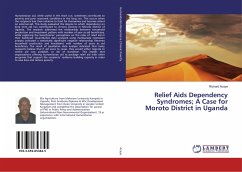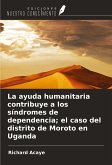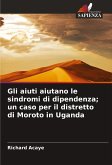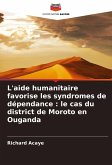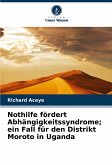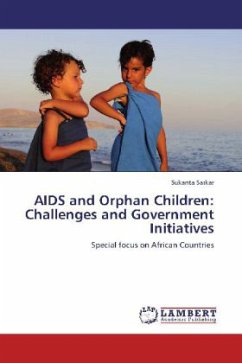Humanitarian aid, while useful in the short run, sometimes contributes to poverty and poor economic conditions in the long run. This occurs when the recipients lose their initiative to fend for themselves and become reliant on external aid. This study evaluated the degree to which dependency on long term aid has contributed to chronic poverty in Moroto District of Uganda. The research addressed the relationship between household production and investment pattern with number of year as aid beneficiary, while exploring the beneficiaries' perceptions on the roles of relief aid in their livelihood. Quantitative data analyzed using multivariate regression analysis indicated a statistically significant negative relationship between household production and investment with number of years as aid beneficiary. The result of qualitative data analysis indicated that many recipients believe that if aid were to cease, they would either migrate to where aid was available, or die of starvation.This implies that organizations offering humanitarian aid to package relief aid with other programs that support the recipients' resilience building capacity in order to save lives and reduce poverty.
Bitte wählen Sie Ihr Anliegen aus.
Rechnungen
Retourenschein anfordern
Bestellstatus
Storno

